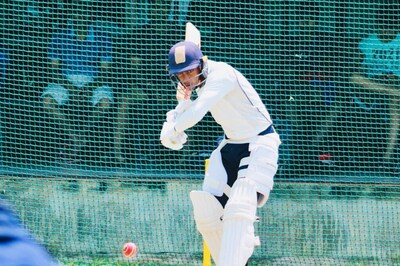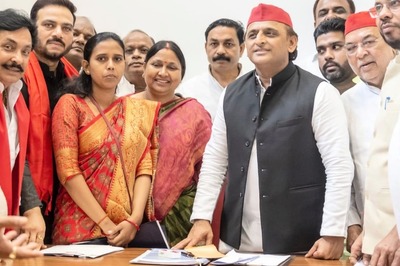
views
Dengue infection is massively spreading in the southern state of Karnataka. A mosquito-borne viral disease, Dengue, is more likely to spread during the monsoons. As per a report in The New Indian Express, there have been six deaths in the state already.
The Aedes aegypti mosquito is the main vector that transmits the viruses that cause dengue. The viruses are passed on to humans through the bites of an infective female Aedes mosquito, which mainly acquires the virus while feeding on the blood of an infected person. The full life cycle of dengue fever virus involves the role of mosquito as a transmitter (or vector) and humans as the main victim and source of infection.
According to a report in Prajavani, a Kannada daily, a total of 10, 524 cases of dengue have been recorded in the state since January 1, 2019, and six of them have died after being unresponsive to treatment. According to the Ministry of Health and Family Welfare, of the five worst-hit states, four are in South India: Karnataka, Tamil Nadu, Telangana and Kerala. Other states affected with dengue in 2019 are Gujarat and Rajasthan.
As per the Prajavani report, around 2,199 dengue cases were reported during the same time the previous year. This year, however, the number of dengue cases reported in the region under Bruhat Bangalore Mahanagara Palike (BBMP) has gone up to 6,515. 948 cases in Dakshina Kannada region; 384 cases in Shivamogga; 272 in Haveri; 199 in Chamarajanagar; 183 in Kalburgi; 157 in Hassan; 167 in Udupi; 161 in Chikmagalur and 161 cases in Davangere have been reported.
Reportedly, within two weeks since July 4, the state has seen 1,714 dengue cases whereas the number was 3,058 between January 1 and July 3. According to The New Indian Express, “Malaria, a common ailment in the Malnad and coastal areas, has also crept into the BBMP limits owing to uncontrolled breeding of mosquitoes.” With the flood situation persistent and rains expected to continue in the state, there is a need for government intervention in preventing the spread of the disease.
According to the National Vector Borne Disease Control Programme (NVBDCP), source reduction of the vector is still the single most effective method to control dengue and other vector-borne diseases like malaria. Local body government and health systems should be strengthened to take up vector control and provide necessary conservative treatment.




















Comments
0 comment